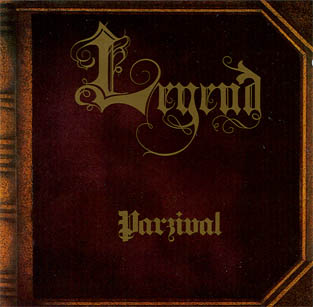

Week of January 28, 2007


Personnel:
Lothar Siems - Guitar, Vocals
Walter Quintus - Violin, Bass, Keyboards
Thomas Oliver - Drums, Vocals
Walter V. Seydlitz - Cello
Albums:
Legend (Telefunken SLE 14635) 1971
CD: East West 1998, 3984-23108-2
Ba-Rock (Telefunken SLE 14685) 1972
CD: East West 1998, 3984-23109-2
Sampler "A German Rock Legend" (Nova 6.28337, 1975) featured both their
original albums; "Rock In Deutschland Vol.9" (Telefunken 6.24610 AG,
1981) was a compilation from these plus a rare 1972 single.
Along with Ougenweide, Parzival were one of the few German bands
to follow in the steps of British groups like Gryphon and use medieval
folklore as the basis for their refined progressive music. The nucleus of the
group was the trio of Lothar Siems, Walter Quintus and Thomas Oliver. Siems and
Oliver had played together since 1965 in the Bremen group The Chamberlains,
before joining the Quintus Quartet. Their repertoire comprised
increasingly folky styles. In 1971 they took the name Parzival and
obtained a recording contract with Telefunken. "Legend" (1971) was a fine
album of lyrical, electric folk-rock with much use of flute, violin and acoustic
guitars. Featured guests were: Matthias Muller-Menckens (flute, piano), Joachim
Reichhold (cello) and Hans Jaspers (viola). Some of the tracks had the slight
melancholia I associate with
Novalis at their best. Unlike Ougenweide and
Novalis, Parzival
sang in English and lacked the German distinction of the folk-rock bands on the
Pilz label. Like Pell Mell, Parzival also incorporated classical
music, but not in a pompous large-scale manner. Technically they enjoyed the
steady support of producer Konrad Plank. An obscure single "One Day"
(coupled with "Souls Married To The Wind") followed in 1972. Luckily, it
was later included on the "Rock In Deutschland" sampler in 1981.
Their second and sadly last album "Ba-Rock" emerged in the beginning of
1973. The group had expanded with the addition of cellist Walter V. Seydlitz and
was helped by Muller-Menckens and Harald Konietzko (bass, vocals). This effort
was similar to their first album, although in parts closer to rock than "Legend".
Parzival's legacy is to have recorded two of the best German folk-rock
albums which avoided the trappings of over-ambition. Most of their songs were
short, melodic, charming and beautiful. For this reason, their original albums
are fast increasing in value.
Taken from Cosmic Dreams at Play - A guide to German Progressive and Electronic Rock by Dag Erik Asbjørnsen, Borderline Productions, ISBN 1-899855-01-7